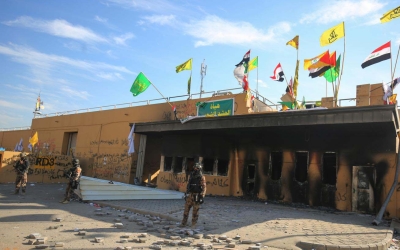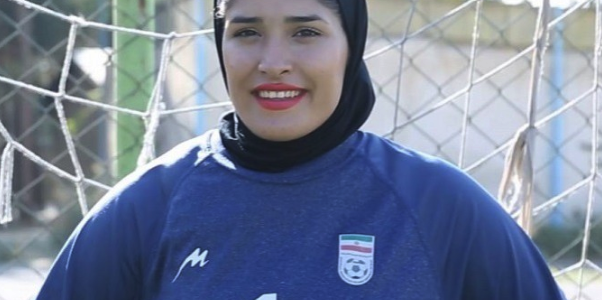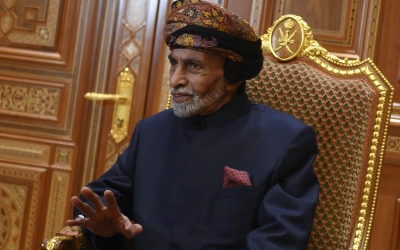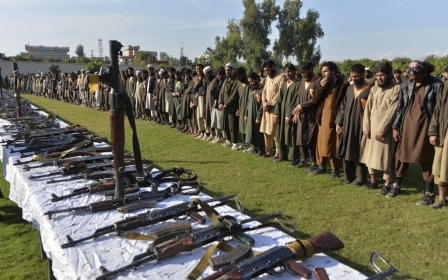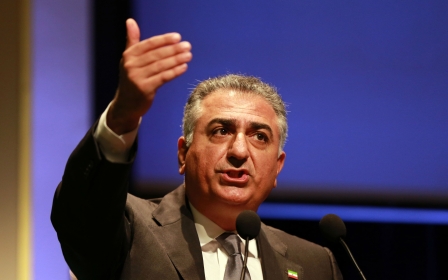Iranian press review: Blow to US forces 'yet to come in Iraq', says IRGC media
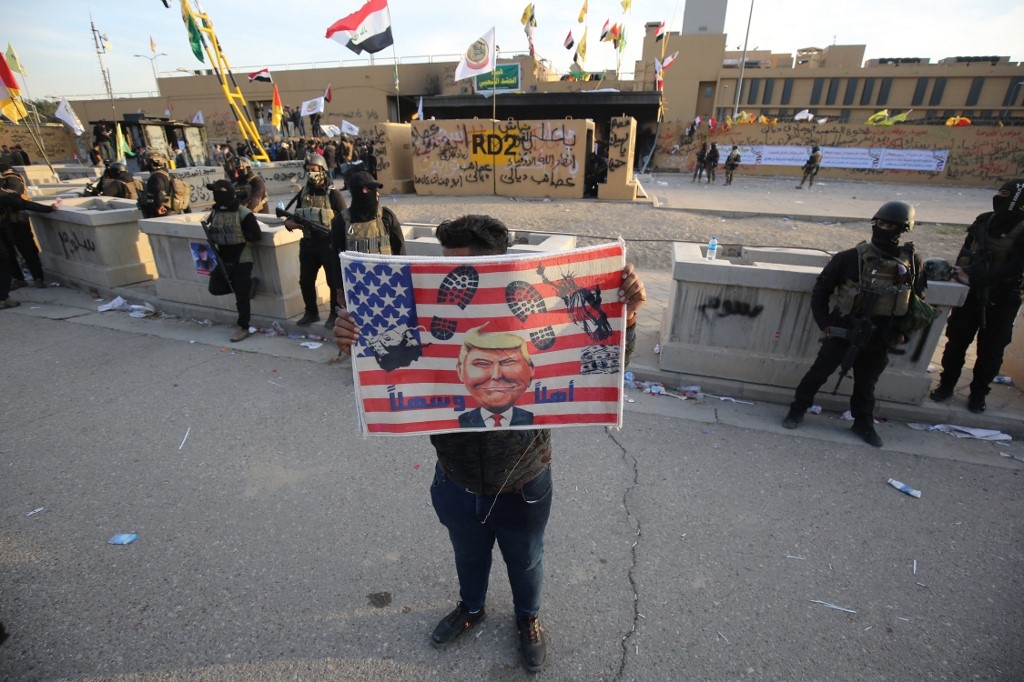
More strikes against US to come, warns IRGC media
Iranian dailies affiliated to the Islamic Revolutionary Guard Corps (IRGC) have suggested that an attack on the United States embassy in Iraq on Tuesday was a first response to the American air strikes against Kataib Hezbollah (KH) forces, and that a proportional response has yet to be carried out.
Kataib Hezbollah is a faction in the Popular Mobilisation Units (PMU), a paramilitary force that was formed with Iranian backing in 2014 to fight against the rise of Islamic State in Iraq.
“This is Iraqis' first blow to the Americans, and the decisive response to Washington’s felony has yet to come,” the Javan daily, with close ties to the IRGC, reported on Wednesday, referring to the Iraqi demonstrators’ attack on the US embassy compound in Baghdad.
New MEE newsletter: Jerusalem Dispatch
Sign up to get the latest insights and analysis on Israel-Palestine, alongside Turkey Unpacked and other MEE newsletters
Under the headline “Devil’s nest burnt in the fire of Iraqis’ anger”, the Iranian daily also suggested that the US attack on KH forces in Iraq and Syria on Sunday, which left 28 dead, was a violation of Iraq's sovereignty and international laws.
The conservative Kayhan daily compared the protesters’ attempt to storm the US embassy to the 1979 Iranian students’ attack on the US embassy in Tehran which led to the Iran hostage crisis.
“The blood of Hashd al-Shaabi [PMU] martyrs has unified Iraqi demonstrators, who have demanded the closing of the US embassy and the exit of US forces from Iraq,” the daily wrote.
Female goalkeeper sets clean sheet record in Iran
Zahra Khajavi, the goalkeeper of Vachan Kurdistan women’s football club and Iran’s women’s national football team, has set a new record in the country for a clean sheet and ranked higher than the country’s well-known male goalkeepers.
Last week, Khajavi made history in Iran and became the first Iranian goalkeeper to not concede a goal after 950 minutes.
Payam Niazmand and Hossein Hosseini, with 935 and 872 minutes respectively, are the male goalkeepers at the second and third place on the list.
News of the historic record went viral on Farsi social media and Khajavi’s post has since received over 17,000 likes on Instagram, with comments from people congratulating her.
The news also made headlines in Iranian newspapers with her image on the front page of the Shahrvand daily. The daily reported that with this record, Khajavi will be placed among the best 100 goalies with the highest record of clean sheets in national leagues.
Maryam Irandoost, a former head coach of Iran’s women national football team, wrote in an opinion piece in the Shahrvand daily, under the headline “What a shame no one saw Khajavi’s performance,” that Iran’s national broadcaster should show the Iranian women’s football league matches.
Women football players in Iran receive little support from Iran’s Sports Ministry and the country’s national broadcaster, directed by conservatives, avoids broadcasting Iranian women’s football matches.
Iran weighs Oman’s geopolitical role after Sultan Qaboos
Iranian politicians and foreign policy advisers hope to keep close ties with Oman, regardless of who succeeds Sultan Qaboos bin Said, ISNA news agency reported.
The 79-year-old Omani king, who has ruled the Gulf country since 1970, travelled to Belgium in December for treatment for a recurrent colon cancer.
Sultan Qaboos has no children and his recent health situation has fuelled speculations about his successor.
Iranian analyst Mir Javad Galavi told ISNA that the designers of Iran’s foreign policy believe that Oman’s role as a mediator between the warring countries in the region will not change when a new sultan comes to power in Muscat.
“Oman, in the Arabian Peninsula, has been isolated because of its geographical situation and for having a large majority of Ibadi muslims", Galavi told ISNA, in reference to the Ibadi branch of Islam, or the "third branch", that is separate from Shia and Sunni branches.
“To overcome this isolation, Muscat has tried to keep friendly relations with other countries in the region and also the world powers.”
In 2014, Oman played a vital role in negotiations between Iran and the United States that led to the 2015 nuclear deal. Since Washington's withdrawal from the agreement in 2018, Muscat has once again become a key player in reducing the rising tensions between Iran and the US.
Role of Iran broadcaster in activist confessions under scrutiny
Iranian political activists and former political prisoners have raised concerns about the relation between the Islamic Republic of Iran Broadcasting (IRIB), the interrogators working for the Islamic Revolutionary Guard Corps (IRGC) and the government’s intelligence services.
Despite a constitutional ban on recording and broadcasting the confessions of the accused before being convicted by a court, IRIB has broadcast political activists’ forced confession since the 1979 revolution.
Recently, the relationship between Ameneh Sadat Zabihpour, an IRIB journalist, and IRGC interrogators has sparked a heated debate in the country.
A labour activist has accused Zabihpour of being present during one of the interrogations, and a photo of the journalist in Iranian police uniform has added to the controversy.
In an article in the Arman daily, Motahareh Shafiei, a journalist and former political prisoner, suggested that the state-run national broadcaster “has been acting as a private broadcaster supporting conservatives”.
IRIB is the only broadcaster in Iran and its managers are directly appointed by the Iranian Supreme Leader Ayatollah Ali Khamenei.
* Iranian press review is a digest of reports that are not independently verified as accurate by Middle East Eye.
Middle East Eye delivers independent and unrivalled coverage and analysis of the Middle East, North Africa and beyond. To learn more about republishing this content and the associated fees, please fill out this form. More about MEE can be found here.


